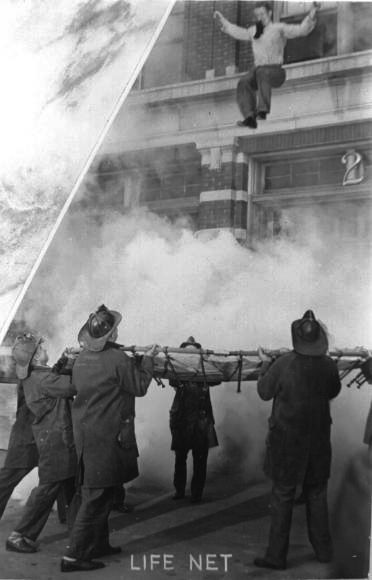Here is what you said;
You are defining a saved person as one who continues through a process of sanctification and soon produce fruit. And if they do not produce fruit they are not saved. This sounds like Lordship Salvation to me. It teaches a person must persevere or endure to the end to be saved. That is what the word "continue" means. So, I do not believe I have misrepresented you at all.
1. At salvation a person is saved, regenerated, justified, sanctified, and much much more. Do you believe that?
2. Beginning at salvation the Christian begins to change, that is, submit himself to Christ. It is called sanctification.
2 Corinthians 5:17 Therefore if any man
be in Christ,
he is a new creature: old things are passed away; behold, all things are become new.
--A new creature begins to change. This has nothing to do with perseverance.
1 John 2:3 And hereby we do know that we know him, if we keep his commandments.
4 He that saith, I know him, and keepeth not his commandments, is a liar, and the truth is not in him.
--No change, and you say you know him, then you are a liar, aren't you?
There is not a word about tares or wheat in the parable of the sower. Once again you are reading into scripture what is not there. In fact, we know that the seed is the word of God.
As the parable is told in Matthew:
Matthew 13:22 He also that received seed among the thorns is he that heareth the word; and the care of this world, and the deceitfulness of riches, choke the word, and he becometh unfruitful.
Then immediately after he launches into another parable, and just a few verses later says:
Matthew 13:25 But while men slept, his enemy came and sowed tares among the wheat, and went his way.
Both tares and thorns can be classified under "weeds." They choke out the good seed. It doesn't use the word "tare" but it does use the word "thorn,"
You can look this up for yourself. The thorns here are not just individual thorns on a plant. They are plants in and of themselves, like thistles.
Look at the verse:
Luke 8:7 And some fell among thorns; and the thorns sprang up with it, and choked it.
--It is not plants having thorns that choked them. It is the thorns. Some of these plants can grow 20-30 feet high in the east. It is not referring to "thorns" on a rose bush. They are a kind of plant like a thistle.
A person can believe and not mean it? What are you saying? If that is so, no man can be certain he is saved. Your own signature verse says, "I know whom I have believed".
I am saying:
Simon "believed" and was not saved.
The devils "believed" and are not saved.
I grew up as a Catholic and "believed" and yet was not saved. I believed that Christ died, was buried and rose from the dead. I knew about his sacrifice. I knew the facts. I "believed." I never herd the gospel, however. I never heard how those facts personally apply to me. The gospel is personal. It must be applied. In salvation there is a personal relationship, not just belief or acceptance of a set of facts. Most historians will accept and believe the facts. That doesn't make all historians saved.
If you don't know if you were serious when you believed, you have a serious issue that I have no idea how to fix.
I am not God nor claim to be:
Jeremiah 17:9 The heart
is deceitful above all
things, and desperately wicked: who can know it?
Each soil represents the hearer of God's word. The way side are those that hear, but before they believe, the fowls or devil takes the word out of their heart. This is sin. Their love for sin prevents them from believing.
They hear but do not believe.
The rocky soil are believers, they receive the word with joy. They spring up, they are alive. But when persecution comes, they fall away and produce no fruit.
Not so.
They believe for a little while, meaning they mentally accept the facts. I did that in the RCC. I "believed." That wouldn't have helped had persecution come, would it?
The thorny soil also receive the word and spring up. They are alive. But the pleasures and distractions of the world lure them away from service and they produce no fruit.
Unbelievers that show interest, but that is all. Their hearts are too "wrapped up" in the material things of this world to care about Christ.
You couldn't be more wrong, it is absolutely about perseverance, the rocky soil and thorny soil fell away.
No, it is about belief and unbelief. It is about the reasons for unbelief.
Yes, but you have to be alive to be choked to death. Nevertheless, it is not teaching that they spiritually died, or you would have to believe we could lose our salvation. That is not what it says, it says they did not bare fruit.
Jesus did not say the rocky and thorny soil were unbelievers. He said they believed "for a while". He did not say they were lost, he said they brought forth no fruit to perfection.
You are reading all sorts of things into this parable that are not being said.
You are reading things into this parable, not I.
The Bible does not contradict itself. Good soil brings forth good fruit.
A good tree brings forth good fruit.
James 3:11 Doth a fountain send forth at the same place sweet
water and bitter?
12 Can the fig tree, my brethren, bear olive berries? either a vine, figs? so
can no fountain both yield salt water and fresh.


